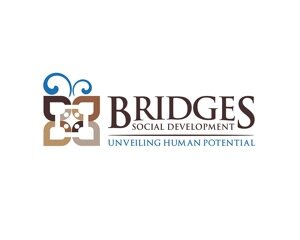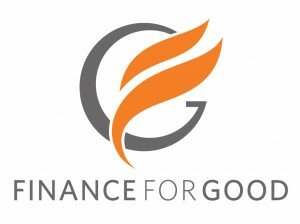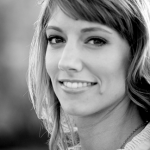Recapping SEWF’s Finance Solutions Lab on Poverty
The Finance Solutions Labs brought together an array of leaders in social innovation and fellow SEWF attendees to provide support to organizations as they bring their system-changing initiative to fruition.
Not only did fellow SEWF attendees get a chance to help in the solutions, they were able to learn from the process and apply those insights to their own work.
SEWF 2013 asked representatives from Finance for Good to report on the Social Finance Labs. This article was written by Denise Hearn, Program Development Officer, Finance for Good.
A knowledge mobilization hub for organizations in the ‘persons with disabilities’ sector, a social enterprise hub to revitalize an underserved neighborhood in New Brunswick, and a social enterprise fund to empower aboriginal entrepreneurship.
Thursday, October 3rd, held the first Finance Solutions Lab of the SEWF conference, entitled, “Poverty: Multi-Sector Approaches to Complex System Change.” The lab was facilitated by Adam Spence from the MaRS Centre, and informed by key advisors at each discussion table. The three presenting organizations were: Bridges Social Development, Saint John Community Loan Fund, and Vecova Centre for Disability Services.
Participating organizations presented their social innovation idea to a broader audience before joining advisory groups to clarify questions about the model and receive feedback. This participatory and collaborative learning environment allowed experts from relevant fields to ask pointed, pragmatic questions and to offer SWOT analyses to aid in the incubation of these ideas. All participant organizations stated that the Lab process helped to clarify and expand their initial enterprise visions.
Let’s take a closer look at the three sustainable finance ideas that were presented.
St John Community Loan Fund (SJCLF)
 In a venture pioneered by Seth Asimakos, SJCLF desires to build a Social Enterprise Hub space in a currently neglected neighborhood of St John, NB. This neighborhood has a high poverty rate, low high school graduation statistics, and a troublingly low labour force participation rate. The project aims to revitalize this area of the city by encouraging local business ownership and by providing a co-work space for non-profits tackling poverty reduction in the area.
In a venture pioneered by Seth Asimakos, SJCLF desires to build a Social Enterprise Hub space in a currently neglected neighborhood of St John, NB. This neighborhood has a high poverty rate, low high school graduation statistics, and a troublingly low labour force participation rate. The project aims to revitalize this area of the city by encouraging local business ownership and by providing a co-work space for non-profits tackling poverty reduction in the area.
The proposed building plan is three floors comprised of office and training space for entrepreneurial non-profits, social enterprises, and micro entrepreneurs. The building’s mortgage will be paid, in part, by rent generated from these groups and from a ground floor social enterprise café used for employment training purposes.
Much of the conversation at the advisory table centered on securing the building’s revenue stream. Advisors issued warnings about seeing the café as a revenue generator. From prior experience in the social enterprise world, a few contributors noted that most social business cafés they knew were still struggling to turn a profit, even years into operation. A suggestion was made to consider renting space to lower-risk occupants with secure income, such as socially minded businesses.
Vecova
 Vecova provides capacity building programming for persons with disabilities (PWD). This includes, but is not limited to, literacy and employment training, transition planning for youth exiting high school, and community living supports. Vecova also plays a significant role in expanding knowledge within the disability sector, conducting social research consulting for a diverse client base. The organization has pioneered numerous educational campaigns specific to the PWD demographic in Canada.
Vecova provides capacity building programming for persons with disabilities (PWD). This includes, but is not limited to, literacy and employment training, transition planning for youth exiting high school, and community living supports. Vecova also plays a significant role in expanding knowledge within the disability sector, conducting social research consulting for a diverse client base. The organization has pioneered numerous educational campaigns specific to the PWD demographic in Canada.
Vecova’s social venture vision is to create an online Knowledge Mobilization Hub that will allow other organizations in the sector to access and share information. Recognizing the current deficit of this type of resource, Vecova hopes that this knowledge sharing will translate into ensuring best practices for current service-provision models across the sector.
I asked Curtis Slater, the Vecova representative, to name his most relevant take away a week after participating in the Finance Lab. He responded by saying: “Reflecting back on my experiences during the Finance Lab, I am now using a much broader lens to view our social enterprise efforts through. I realized that I was being too narrow in my scope of who our customers could be and what impact our initiative could have within the sector, so my experiences definitely helped me see a much bigger picture and provided some tangible steps to expanding the net of our influence.”
Curtis also mentioned that participant feedback validated that research and policy are the best way of engaging collaboration within the PWD sector, and that he was encouraged to continue on this project trajectory.
Bridges Social Development
 Bridges Social Development “was created for the purpose of capacity building and training of community, professional, and youth leaders.” Interestingly, Bridges initially operated in Yemen until political instability caused a shift in focus towards Yemeni immigrants in the Calgary area. Since then, Bridges has expanded its work to many diverse communities within Alberta.
Bridges Social Development “was created for the purpose of capacity building and training of community, professional, and youth leaders.” Interestingly, Bridges initially operated in Yemen until political instability caused a shift in focus towards Yemeni immigrants in the Calgary area. Since then, Bridges has expanded its work to many diverse communities within Alberta.
Through its efforts, Bridges identified 18-30 year old aboriginal youth as a population underserved by existing programs. In an effort to infuse additional mentorship and support into this demographic, Bridges proposes a Social Entrepreneurship Fund to provide start-up investment in aboriginal youth ventures.
Bridges believes strongly in ‘learning through doing,’ and that failure can also be beneficial as a teaching tool. As such, they are not singularly focused on the success of the entrepreneurship ventures their grantees undertake, but rather, they see the potential of developing enterprising mentalities among this population as an inherently positive investment.
Lindsay Mitchell, the representative for Bridges, was encouraged from her table of participant advisors, that her organization is well suited and well positioned to pilot this type of fund. Lindsay said her largest take-away was simply the encouragement to continue pursuing this project. Although her plans were not altered substantially, she said that, “the language was clarified” from “starting a fund to being a project incubator.”
All three organizations have audacious visions for transforming their communities. Their insatiable passion for those they serve, coupled with advice gleaned from the SEWF Lab discussions, will undoubtedly reinforce their projects in coming months.
If you are interested in hearing more about any particular project and its development, feel free to visit their websites:
More About Finance For Good & Denise Hearn
 Finance for Good was founded to empower social service providers to address the root cause of social issues through the use of social impact bonds. Social impact bonds enable an investment in prevention, and we believe that focusing on prevention will lead to sustainable, positive impacts in our communities. To bring SIBs to Canada we built the first, and only, social impact bond intermediary in Canada.
Finance for Good was founded to empower social service providers to address the root cause of social issues through the use of social impact bonds. Social impact bonds enable an investment in prevention, and we believe that focusing on prevention will lead to sustainable, positive impacts in our communities. To bring SIBs to Canada we built the first, and only, social impact bond intermediary in Canada.
Solving some of the toughest problems requires collaboration with all stakeholders – governments, front-line service providers, investors, those in need, and the local communities in which we live. Finance for Good builds the tools, processes, and partnerships required to connect these stakeholders and implement new social programs in the community.
 Denise Hearn is human. Professionally, she is the Program Development Officer for Finance for Good responsible for engaging and supporting social sector agencies in Social Impact Bond design and structuring. Previous to Finance for Good, Denise held various management positions in the non-profit sector with a concentration of expertise in program development, fundraising, volunteer recruitment, and project management. Under her direction, the Take Charge Community Education Program grew to speak with over 16,000 students and parents annually about topics related to healthy relationships and sexual decision-making. Denise holds a Bachelor of Arts in International Development from Baylor University in Texas.
Denise Hearn is human. Professionally, she is the Program Development Officer for Finance for Good responsible for engaging and supporting social sector agencies in Social Impact Bond design and structuring. Previous to Finance for Good, Denise held various management positions in the non-profit sector with a concentration of expertise in program development, fundraising, volunteer recruitment, and project management. Under her direction, the Take Charge Community Education Program grew to speak with over 16,000 students and parents annually about topics related to healthy relationships and sexual decision-making. Denise holds a Bachelor of Arts in International Development from Baylor University in Texas.
Tags: Bridges Social Development, Finance For Good, Poverty, Saint John Community Loan Fund, Social Finance, Vecova





